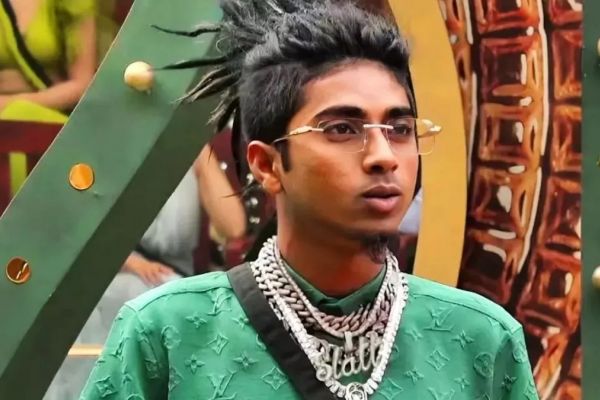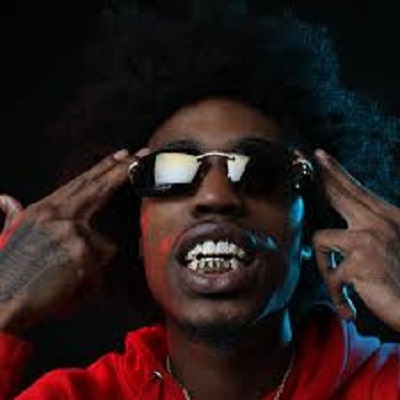A 23-year-old rapper, MC Stan from a slum in India has risen to national prominence after winning one of the country’s most popular reality competitions.
Until a few months ago, MC Stan, a native of the western Indian state of Maharashtra, was only well-known among hip-hop and rap enthusiasts, who adored his bold rhymes and uncompromising approach.
Since Sunday, when the show’s host, star Salman Khan, declared him the winner, his name has been trending on social media.
Fans have praised Stan’s “raw and genuine attitude,” and hip-hop aficionados in India have lauded him as the “savior of hip-hop.” Stan’s music has gained new fans, including Bollywood actor Ranveer Singh and singer Honey Singh, who dubbed him the “Indian Lil Wayne.”
Long before his arrival into the Bigg Boss house, Stan, like many other rappers, had created controversy. His music has been criticized for its use of harsh and sexually graphic lyrics, disdain for women, and lurid attacks on his rivals.
His ex-girlfriend filed a police report accusing him of violence last year; the police had begun investigating the report, but no arrests had been made.
The rapper has not publicly addressed the charges, but in October he stated that he competed in Bigg Boss to “alter people’s view of me.”
His devoted supporters, on the other hand, assert that the rapper’s combative manner is a part of hip-distinctive hop’s socio-political grammar, which represents the fears of those who grew up without luxury.
At age 12, Stan, whose true name is Altaf Tadavi, began performing in public. His poor origins – he grew up in a slum in the city of Pune – are crucial to his writing, although little is known about his family.
“I feel like a hood baby,” he told Platform magazine in an interview, adding that he witnessed “a lot of criminal activity and did not have a very fortunate upbringing.”
Stan adds that qawwali, a style of Sufi devotional singing with connections to gospel jazz, helped him better comprehend music when he was growing up. “Qawwali discusses things that awaken you, and I related to that a great deal,” he told Platform.
Before appearing on Bigg Boss, Stan was rarely interviewed by the media. He told Platform that his brother introduced him to rap legends such as Lil Wayne, 50 Cent, and Eminem when he was in high school.
Stan was so inspired by their music that he spent hours in dirty cybercafes researching about them and listening to their work.
After two years, he decided to attempt it himself. He initially shared his rap videos with relatives and friends over WhatsApp. After gaining recognition, he created a YouTube account, which currently has over six million subscribers, and began to take his work more seriously.
His songs got more politically incisive (and the lyrics more derogatory), and his videos became extremely stylized. The aesthetics, which included choppy jump cuts and neon-lit settings, may have appeared amateurish to some, but his expression remained genuine.
Stan became an improbable fashion icon. The artist has pushed hip-hop fashion closer to Indians with his edgy hair extensions, pastel-punk dreadlocks, and map of tattoos and diamond chains peeking through his outfits.
For Stan, rapping was as serendipitous as discovering hip-hop:
“It was as if I had arrived from outer space with new material to share with the locals,” he told Platform.
His breakthrough came in 2019 with the release of Khuja Mat (Don’t Mess With Me). The diss tune, created in reaction to another rapper’s criticism, received millions of YouTube views.
Dustin Yarde, a fan who discovered the musician through the song, says, “What I appreciated most was his flow and his ability to incorporate complete nonsense into his words and still sound catchy.”
With the release of Khuja Mat, Stan has had other hit singles, particularly on his next album Tadipaar. Stan discusses his upbringing in “P-town” or Pune, the slum where he grew up, with scathing criticism of living and surviving in violent neighborhoods.
He referred to himself as Basti ka Hasti, which loosely translates as the small slum child who scripted his own fate.
In the song Amin, he sneers,
“Tune subhe uthke sun dekha, mene subhe uthke gun dekha” (You woke up to sunshine; I woke up to weapons and violence).
According to his fans, Stan was always interested in discovering his identity through music.
Mr. Yarde explains,
“He had an early song titled Astaghfirullah in which he discusses his Muslim identity and how he is seen as a rapper in his community.”
According to some, Stan is the pioneer of mumble rap in India, which is a loosely defined rap genre in which the performer mumbles lyrics with little emphasis on lyrical.
A Canadian fan, Aziz Malik, describes his compositions as “honest dialogues that, when wrapped around a blown-out icy beat, feel frighteningly revelatory.”
Mr. Yarde claims that he did not enjoy many of Stan’s latest songs because “it appears that he utilizes homophobic and sexist lyrics as symbols of success and power.”
“But I always believed he had the potential to achieve success. I am awaiting the evolution of his lyrics.”
The rapper, who claims to have served time in prison, has penned a number of songs against police abuse. Stan describes how he was falsely accused of murder in the song Section 307, a reference to the Indian Criminal Code code for murder.
But for his followers, each song represents a voyage of self-development. “The subtext is the struggle between what he was and what he constructed of himself.
His song is a reminder that, regardless of how difficult his life had been, he prevailed against all obstacles on his own “Mr. Malik said.
When Stan joined Bigg Boss, he carried his interpersonal skills with him.
Fans and competitors adored his personality, brashness, and raw brilliance. His witty one-liners like ‘Shemdi,’ ‘appreciate you,’ ‘Haq se,’ and ‘feel you, bro’ went viral and joined the vernacular.
Fans were particularly impressed with his ability to adapt to the glamorous sets without sacrificing his roots.
And every time he performed throughout the show, including an impromptu rap performance while inhaling helium from a balloon, supporters celebrated for days on social media.
For them, Stan had accomplished the unthinkable by bringing rap, which had been on the periphery of India’s music scene, into the mainstream.
Stan commented after his victory, “We made history, kept real throughout, and rapped hip-hop on national television.” “Ammi ka sapna poora ho gaya” means “my mother’s wish has come true.”
Also Read: M. Shadows Married His Wife After A 6th-Grade Romance




